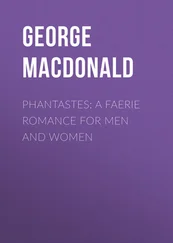George MacDonald - Warlock o' Glenwarlock - A Homely Romance
Здесь есть возможность читать онлайн «George MacDonald - Warlock o' Glenwarlock - A Homely Romance» — ознакомительный отрывок электронной книги совершенно бесплатно, а после прочтения отрывка купить полную версию. В некоторых случаях можно слушать аудио, скачать через торрент в формате fb2 и присутствует краткое содержание. Издательство: Иностранный паблик, Жанр: foreign_prose, foreign_religion, foreign_antique, на английском языке. Описание произведения, (предисловие) а так же отзывы посетителей доступны на портале библиотеки ЛибКат.
- Название:Warlock o' Glenwarlock: A Homely Romance
- Автор:
- Издательство:Иностранный паблик
- Жанр:
- Год:неизвестен
- ISBN:нет данных
- Рейтинг книги:3 / 5. Голосов: 1
-
Избранное:Добавить в избранное
- Отзывы:
-
Ваша оценка:
- 60
- 1
- 2
- 3
- 4
- 5
Warlock o' Glenwarlock: A Homely Romance: краткое содержание, описание и аннотация
Предлагаем к чтению аннотацию, описание, краткое содержание или предисловие (зависит от того, что написал сам автор книги «Warlock o' Glenwarlock: A Homely Romance»). Если вы не нашли необходимую информацию о книге — напишите в комментариях, мы постараемся отыскать её.
Warlock o' Glenwarlock: A Homely Romance — читать онлайн ознакомительный отрывок
Ниже представлен текст книги, разбитый по страницам. Система сохранения места последней прочитанной страницы, позволяет с удобством читать онлайн бесплатно книгу «Warlock o' Glenwarlock: A Homely Romance», без необходимости каждый раз заново искать на чём Вы остановились. Поставьте закладку, и сможете в любой момент перейти на страницу, на которой закончили чтение.
Интервал:
Закладка:
There was no one in the room when they entered, and Cosmo was yet staring in mute astonishment, when suddenly Mr. Simon was addressing his father. But the door had not opened, and how he came in seemed inexplicable. To the eyes of the boy the small man before him assumed gigantic proportions.
But he was in truth below the middle height, somewhat round-shouldered, with long arms, and small, well-shaped hands. His hair was plentiful, grizzled, and cut short. His head was large and his forehead wide, with overhanging brows; his eyes were small, dark, and brilliant; his nose had a certain look of decision—but a nose is a creature beyond description; his mouth was large, and his chin strong; his complexion dark, and his skin rugged. The only FINE features about him were his two ears, which were delicate enough for a lady. His face was not at first sight particularly attractive; indeed it was rather gloomy—till he smiled, not a moment after; for that smile was the true interpreter of the mouth, and, through the mouth, of the face, which was never the same as before to one that had seen it. After a word or two about the book he had borrowed, the laird took his departure, saying the sooner he left master and pupil to themselves the better. Mr. Simon acquiesced with a smile, and presently Cosmo was facing his near future, not without some anxiety.
CHAPTER XI.
THE NEW SCHOOLING
Without a word, Mr. Simon opened a drawer, and taking from it about a score of leaves of paper, handed one of them to Cosmo. Upon it, in print, was a stanza—one, and no more.
"Read that," he said, with a glance that showed through his eyes the light burning inside him, "and tell me if you understand it. I don't want you to ponder over it, but to say at a reading whether you know what it means."
Cosmo obeyed and read.
"I dinna mak heid nor tail o' 't, sir," he answered, looking over the top of the paper like a prisoned sheep.
Mr. Simon took it from him, and handed him another.
"Try that," he said.
Cosmo read, put his hand to his head, and looked troubled. "Don't distress yourself," said Mr. Simon. "The thing is of no consequence for judgment; it is only for discovery."
The remark conveyed but little consolation to the pupil, who would gladly have stood well in his own eyes before his new master.
One after another Mr. Simon handed him the papers he held. About the fifth or sixth, Cosmo exclaimed,
"I do understand that, sir."
"Very well," returned Mr. Simon, without showing any special satisfaction, and immediately handed him another.
This was again a non-luminous body, and indeed cast a shadow over the face of the embryo student. One by one Mr. Simon handed him all he held. Out of the score there were three Cosmo said he understood, and four he thought he should understand if he were allowed to read them over two or three times. But Mr. Simon laid them all together again, and back into the drawer.
"Now I shall know what I am about," he said. "Tell me what you have been doing at school."
Were my book a treatise on education, it might be worth while to give some account of Peter Simon's ways of furthering human growth. But intellectual development is not my main business or interest, and I mean to say little more concerning Cosmo's than that, after about six weeks' work, the boy one day begged Mr. Simon to let him look at those papers again, and found to his delight that he understood all but three or four of them.
That first day, Mr. Simon gave him an ode of Horace, and a poem by Wordsworth to copy—telling him to put in every point as it was in the book exactly, but to note any improvement he thought might be made in the pointing. He told him also to look whether he could see any resemblance between the two poems.
As he sat surrounded by the many books, Cosmo felt as if he were in the heart of a cloud of witnesses.
That first day was sufficient to make the heart of the boy cleave to his new master. For one thing Mr. Simon always, in anything done, took note first of the things that pleased him, and only after that proceeded to remark on the faults—most of which he treated as imperfections, letting Cosmo see plainly that he understood how he had come to go wrong.
Such an education as Mr. Simon was thus attempting with Cosmo, is hardly to be given to more than one at a time; and indeed there are not a great many boys on whom it would be much better than lost labour. Cosmo, however, was now almost as eager to go to his lessons, as before to spend a holiday. Mr. Simon never gave him anything to do at home, heartily believing it the imperative duty of a teacher to leave room for the scholar to grow after the fashion in which he is made, and that what a boy does by himself is of greater import than what he does with any master. Such leisure may indeed be of comparatively small consequence with regard to the multitude of boys, but it is absolutely necessary wherever one is born with his individuality so far determined, as to be on the point of beginning to develop itself. When Cosmo therefore went home, he read or wrote what he pleased, wandered about at his will, and dreamed to his heart's content. Nor was it long before he discovered that his dreams themselves were becoming of greater import to him—that they also were being influenced by Mr. Simon. And there were other witnesses there, quite as silent as those around him in the library, and more unseen, who would not remain speechless or invisible always.
One day Cosmo came late, and to say there were traces of tears on his cheeks would hardly be correct, for his eyes were swollen with weeping. His master looked at him almost wistfully, but said nothing until he had settled for a while to his work, and was a little composed. He asked him then what was amiss, and the boy told him. To most boys it would have seemed small ground for such heart-breaking sorrow.
Amongst the horses on the farm, was a certain small mare, which, although she worked as hard as any, was yet an excellent one to ride, and Cosmo, as often as there was not much work doing, rode her where he would, and boy and mare were much attached to each other. Sometimes he would have her every day for several weeks, and that would be in the prime of the summer weather, when the harvest was drawing nigh, and the school had its long yearly holiday. Summer, the harvest—"play," and Linty!—oh, large bliss! my heart swells at the thought. They would be out for hours together, perhaps not far from home all the time—on the top of a hill it might be, whence Cosmo could see when he would the castle below. There, the whole sleepy afternoon, he would lie in the heather, with Linty, the mare, feeding amongst it, ready to come at his call, receive him on her back, and carry him where he would!
But alas! though supple and active, Linty was old, and the day could not be distant when they must part company: she was then nine and twenty. And now—the night before, she had been taken ill: there was a disease about amongst the horses. The men had been up with her all night, and Grizzie too: she had fetched her own pillow and put under her head, then sat by it for hours. When Cosmo left, she was a little better, but great fears were entertained as to the possibility of her recovery.
"She's sae terrible aul'! ye see, sir," said Cosmo, as he ended his tale of woe, and burst out crying afresh.
"Cosmo," said Mr. Simon,—and to a southern ear the issuing of such sweet solemn thoughts in such rough northern speech, might have seemed strange, though, to be sure, the vowels were finely sonorous if the consonants were harsh,—"Cosmo, your heart is faithful to your mare, but is it equally faithful to him that made your mare?"
"I ken it's his wull," answered Cosmo:—his master never took notice whether he spoke in broad Scotch or bastard English—"I ken mears maun dee, but eh! SHE was sic a guid ane!—Sir! I canna bide it."
Читать дальшеИнтервал:
Закладка:
Похожие книги на «Warlock o' Glenwarlock: A Homely Romance»
Представляем Вашему вниманию похожие книги на «Warlock o' Glenwarlock: A Homely Romance» списком для выбора. Мы отобрали схожую по названию и смыслу литературу в надежде предоставить читателям больше вариантов отыскать новые, интересные, ещё непрочитанные произведения.
Обсуждение, отзывы о книге «Warlock o' Glenwarlock: A Homely Romance» и просто собственные мнения читателей. Оставьте ваши комментарии, напишите, что Вы думаете о произведении, его смысле или главных героях. Укажите что конкретно понравилось, а что нет, и почему Вы так считаете.












